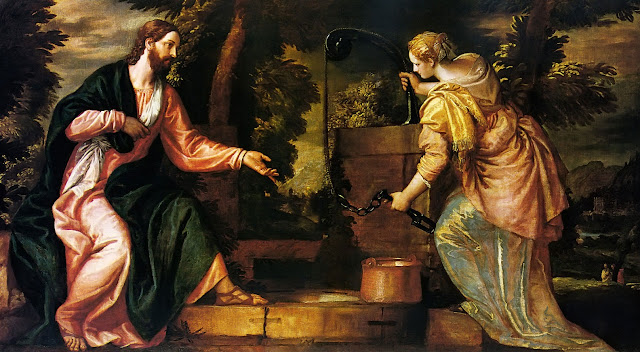Why Women are Excluded from the Christian Ministry
https://phistars.blogspot.com/2012/12/why-women-are-excluded-from-christian.html
Editor's Note: This Essay explains why we have no female priest in the Catholic religion. Well, we do have a few. However, the priests that ordained them have been kicked out of the church. Part of the Peter's Key thing makes it that once a priest has been ordained, they cannot be excommunicated, until they commit a really bad sin. So lets continue with the explanation. This essay was part of my Early Christianity class. It puts a lot of cool historical things in perspective. Needless to say, the Catholics had to change their religion a lot to please the all mighty Caesar. Regardless, I am certain that you will like this essay of mine.
Why Women are Excluded from the Christian Ministry
In the early Christian churches women had an active
participation. In the subsequent years, their participation was suppressed by
the male bishops. In time the opinions postulated by the male priesthood forged
the traditional opinions that excluded women from ministry in the Christian
traditions. The first traditional view stated that women could not be ministers
because Jesus had no female apostles. The second opinion stated that women like
Eve, had a weak mind and was thus unfit for ministry. Lastly, the ideals that women’s participation
in the church was restricted to prayer and charity. These views combined helped
keep women from the ministry.
The first
traditional view stated that Jesus had no female apostles. However, that view
is opaque by Paul’s statement about the Apostle Junia. In his letter to the
Romans, Paul mentions her along with her missionary partner Andronicus. Her influences over the church
become apparent due to her imprisonment with Paul. Junia meets Paul’s ideals of
a proper apostle, meaning that she saw the resurrected Jesus and was an active
missionary. In addition, the episode of the Jesus Samaritan woman shows that
Jesus had women disciples. After Jesus converted the Samaritan woman she then
proceeded to preach about Jesus to the other Samaritans. She may not have been
called literary an apostle. Yet, her actions befit the proper behavior patterns
of an apostle. Another maiden that are considered apostle is Mary Magdalene. In
the Gospels she is said to have seen the risen Jesus. In addition, in the
Gospel of Mary she is said to have been the only apostle that completely
understood Jesus. Thus, this disproves the traditional view that stated that
Jesus had no female apostles.
The second
opinion stated that women had a weak mind, like Eve. To begin, no were in
Genesis does it say that Eve was a feeble temptress. Rather it states that both
Adam and Eve sinned against God. In addition, many Gnostics text states that
Eve had some keen insight of divine wisdom for eating the forbidden fruit first.
Regardless, this theory of women’s weak mind is subsequently disproved by the
actions of women that appear in other books if the Hebrew Bible. For example,
in Judges the Prophet Deborah’s presence in the battle field assured Barak’s
victory in battle. In the Acts of Thecla, Thecla appears numerous of time triumphing
over men with sinful thoughts through her shear wits and piety. In The Acts of
Thecla, it is the men who have weak mind not the women. These among numerous examples serve to
disprove the general notions that women, like Eve, have weak minds.
Lastly, the
traditional view states that women’s involvement should be restricted to both
prayer and charity. This ideal is erroneous considering the active
participation displayed by the widows. Among the letters of Paul, Paul
describes the active participation of widows in the ministering and leadership
of the church community. In his letter to the Romans, Paul gives great praise
to his coworker Phoebe. He further on describes her many achievements as both
his benefactor and as a leader to the Christians. In addition, Paul describes
many times in his letters missionary partners that included women. In one of
his letters he describes the arguments between two women missionary leaders. In
the real letters of Paul, he does not seem to disapprove the active missionary
movement of women. Thus it can be disproved the general notion that women’s has
to be limited to either prayer or charity.
In
conclusion, the traditional perspective that denies women’s ministry is based
on false notions regarding the Biblical text. It is simply rather easy to
ignore the numerous cases that display women’s active participation. In
addition, believing that like Eve women have inferior minds is disprove by
women from subsequent generations that appear in the Biblical text. These
general notions sprout from patriarchal tendencies that reappeared, after the
Christians started submitting to the Roman authority. To deny women ministry is
anti- Christian. The proof stands in the examples of women like Thecla,
Deborah, the Apostle Phoebe and Mary Magdalene. Thus, the traditional views
that deny women ministry are erroneous.





